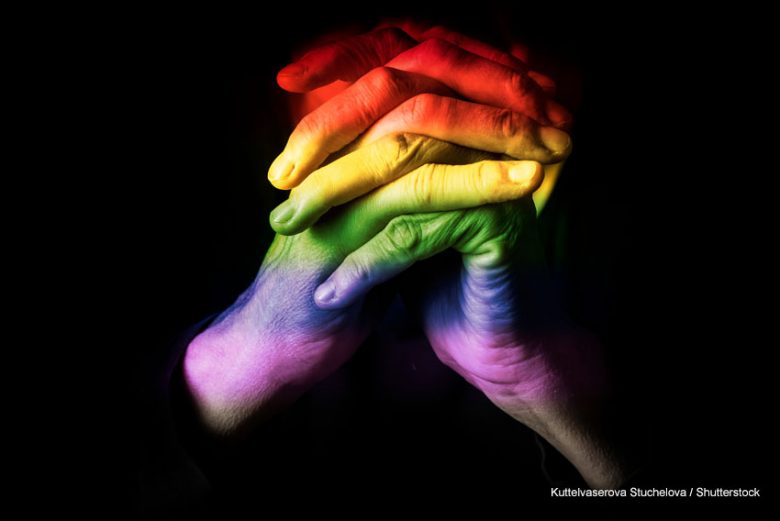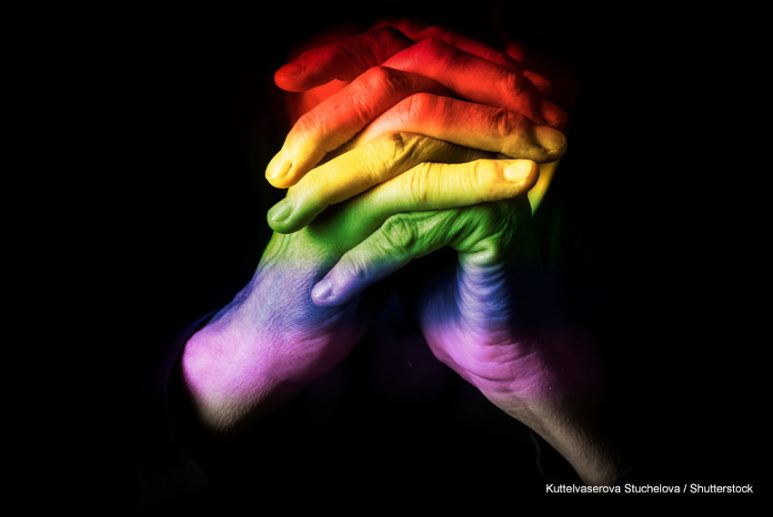By Hannah Ajala
Pride Month for many people is a chance for them to learn more, and hopefully educate themselves on the need and importance for human rights for the Lesbian Gay Bisexual Transexual Queer + community. Supermarkets, adverts and even campaigns are full of rainbows during June, and social media posts focus on conversations about the importance of Pride month.
It really depends on where exactly you look. Then there is the media as a whole. The one platform that has the ability to spread and share stories with audiences pretty much anywhere and everywhere. Yet there is still a push from many within the LGBTQ+ community to share their own narratives, from their own experiences. On a more personal note when I produced a documentary earlier this year on being LGBTQ+ in Nigeria I learned more about some of the realities of being Lesbian, Gay or Queer, in a way that I had never properly seen in mainstream media anywhere in the world.

Several individuals have helped push the LGBTQ+ community to be more inclusive. I am not necessarily saying that the media are to blame – but influencers and activists have almost shaped their own media to educate audiences about, quite like how Matthew Blaise, based in Lagos, Nigeria does. Matthew’s pronouns are they/them, and I recently caught up with them to hear their views on media portrayals of the LGBTQ+ people in African media.
“I can definitely say that from the African media, it has been highly unethical, biased and complicit in the homophobia that LGBTQ+ people face in Africa, especially in countries where it is criminalized. One would think that, as journalists, reporters, media personnel, the ultimate goal would be the quest for truth, equality and fairness but that is mostly not the case for reporting in this part of the world,” Matthew Blaise tells MDI.
Blaise mentions Ghana as one of the examples of how the media portray the LGBTQ+ communities. On 20 May, 21 LGBTQ+ activists were unlawfully detained during a workshop where they talked about human rights. According to Matthew Blaise, journalists and news personnel teamed up with the police in order to arrest them.
According to a 2018 Human Rights Watch report “Ghana has a mixed record on its treatment of lesbian, gay, bisexual and transgender (LGBT) people.” It also has a colonial law that “criminalizes ‘unnatural carnal knowledge’ in section 104 (1) (b) of its Criminal Offences Act, which the authorities interpret as “penile penetration of anything other than a vagina”.
The media seem to be complicit in homophobia.
“We have seen the language they use in referring to LGBTQ+ people and activities to be very dehumanizing and homophobic. In Nigeria, the media still misinform the government when it comes to LGBTQ+ affairs. This is seen across sub-Saharan Africa too,” says Matthew Blaise.
At the same time the media’s role is crucial in shaping LGBTQ+ narratives, especially with the language that is chosen when describing a person, place, or in this case, a community of people.
“The role of the media in the fight against inequality is very vital and unique because through them, we see the authentic lives of LGBTQ+ people devoid of bias. If they fail in this duty by misreporting and misinforming, LGBTQ+ people suffer for their actions,” they continue.
Matthew Blaise’s work and activism has attracted global attention. However, the way they have been represented locally, regionally and internationally differs.
“The way I’ve been represented in the international media is quite different from local media and regional media (in Nigeria). I think this is largely because of accountability. The Nigerian media is never held accountable for any form of misreporting, and that puts the lives of LGBTQ+ people in harm’s way. They usually get away with their dehumanization due to the very homophobic society and a failure on their own part as media persons,” they tell MDI.
According to Blaise there has been a very large shift in the reporting of LGBTQ+ news now due to social media, so everyone is being careful because they don’t want to be dragged.
“But I wonder why the fear of not wanting to be dragged checkmates people, instead of the wrongs they are doing,” they say.
In areas where being LGBTQ+ is considered a taboo or even criminalised, the media have a larger responsibility for ethical and unbiased reporting. When a young journalist starts working in the business they are given editorial guidelines books with a set of rules, notes and tips on how to be the best journalist they could be. Could this perhaps be introduced better in more organisations to ensure they are sharing the true realities of someone from a particular group, rather than enforcing their biased opinions which are often negative?
“The media should stick to their ethics honestly. Don’t be biased. Don’t be self centered. Don’t be callous and insensitive while reporting our stories,” says Matthew Blaise.
There is certainly a lot to be done in terms of how power journalists have to change and shape the way others can see others.
Photo Credit: Kuttelvaserova Stuchelova / Shutterstock

